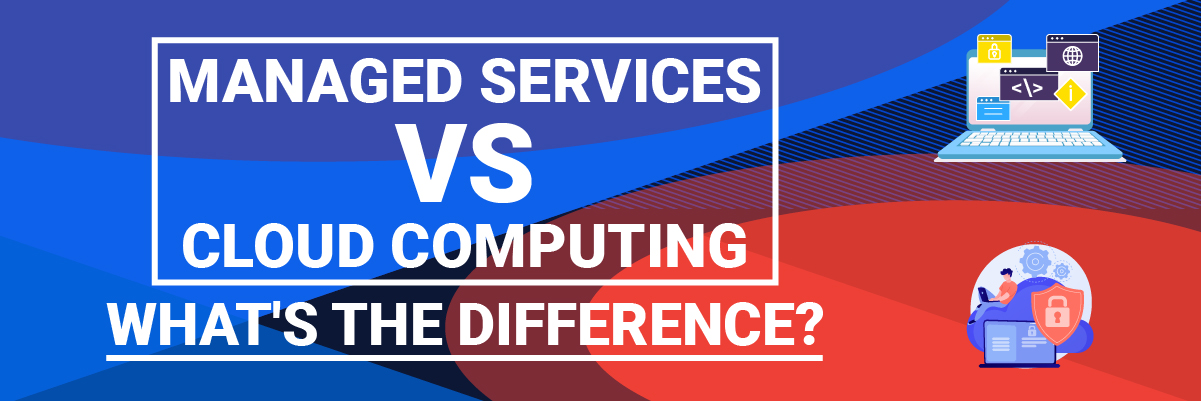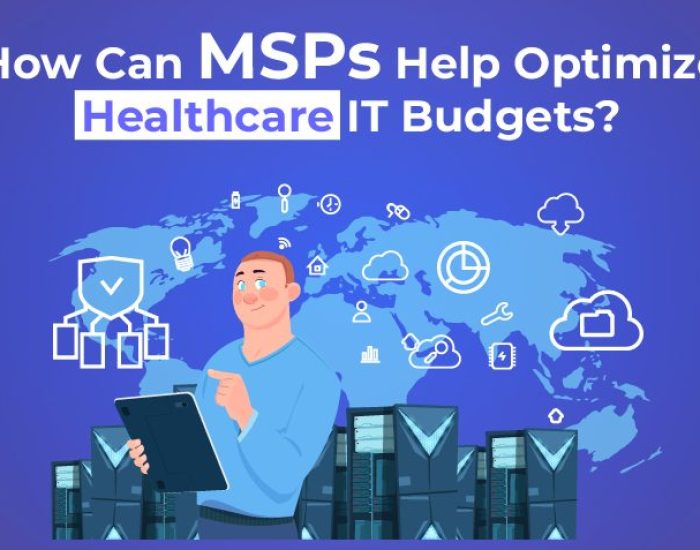
Managed Services vs. Cloud Computing: What’s the Difference?
Suppose you’re a CIO of a company or just an employee. In that case, it’s likely that sooner or later, you will have to deal with two opposing forces: on the one hand, the demands of your organization and the increasing need for agility, and on the other, your team’s inability to manage everything in a digital world. These two factors often lead to a choice between having a managed services contract, which relieves some pressure from your technical department by allowing them to use third-party companies instead of managing services themselves or going all-in with cloud computing.
Managed services and cloud computing can help businesses streamline operations, automate processes, and make data-driven decisions. They also have several things in common that make understanding the differences between managed services and cloud computing more accessible. Managed services and cloud computing are two popular ways organizations outsource their technology needs. Managed services refer to outsourcing day-to-day technology management, including data management systems and IT infrastructure management. On the other hand, cloud computing refers to using cloud-based services to store and access data securely.
Whether you’re a business looking to cut costs or develop an online presence, knowing what these services are and how they can benefit your organization is essential. Read on to learn more about the similarities and differences between managed services and cloud computing.
What is a Managed Service?
Managed services refer to a type of outsourcing where a company owns the technology and staff of another company, but not the business process or the customer relationship. A managed service provider (MSP) offers customers various types of managed services, governed by a service level agreement (SLA). This agreement outlines the expected level of service, including response time, issue resolution, and performance metrics.
One popular type of managed service is data management. This involves the storage, retrieval, and security of customer data. Another type of managed service is information technology services, which include the management of an organization’s technology infrastructure, such as servers, networks, and software applications.
Protected Harbor offers clients various managed services, including data management, cloud computing, migration, and information technology services. We work with our clients to develop customized SLAs that meet their specific needs and provide them with peace of mind knowing that their technology and data are in good hands.
There are several reasons why companies choose to partner with us for their managed services needs. One of the main reasons is our expertise in data management, which helps clients improve their data security and compliance. We also offer various managed services, including cloud-based solutions, which provide our clients the flexibility and scalability they need to grow their businesses.
For example, a hosting company outsources the management of its infrastructure to a third-party company. The customer’s website is hosted on the managed service provider’s cloud. The ordered service provider has managed the hosting for the customer for a fee.
What is Cloud Computing?
Cloud computing is the delivery of resources and services through a network of shared hardware and software that reside on remote servers and are accessed through a network. This means you don’t own or manage any technology but instead access it via the Internet cloud. You can, for example, use a shared spreadsheet on someone’s computer over the Internet without knowing anything about the computer’s technical setup.
It is also referred to as “virtual computing.” A cloud provider like Amazon offers various storage, computing, and software services. The advantage of using a cloud provider is that it saves you time by letting you outsource tasks that used to take up a lot of your time, like managing the technical setup of employees’ computers, to a service provider.
Advantages of Cloud Computing
Cloud providers offer several advantages over managed services providers. First, you get access to a broader range of services and benefits, like automatic backup and disaster recovery. The second is that you don’t have the costs associated with data center maintenance or power. Another advantage of cloud computing is that you are not limited to using the technology of a single provider since the cloud is an open network where anyone can offer a service. This means you can access a broader range of technologies and services without being limited to the ones a managed service provider offers.
Managed Services vs. Cloud Computing
Managed services and cloud computing benefits organizations looking to improve their technology capabilities. With managed services, organizations can benefit from expert monitoring and management of their technology infrastructure and data management strategies that can help them extract valuable insights from the data they collect. With cloud computing, organizations can benefit from scalable, cost-effective solutions allowing them to access their data anywhere.
Managed services can help organizations leverage machine learning and business intelligence to make informed business decisions. At the same time, cloud computing can provide the flexibility and scalability needed to support growth and innovation. Both approaches can offer high data governance and security, which is critical for organizations that handle sensitive information.
Ultimately, the choice between managed services and cloud computing will depend on an organization’s specific needs and goals. For organizations that require more control over their technology infrastructure, managed services may be the better choice. For organizations looking for more flexibility and scalability, cloud-based solutions may be the way to go. Regardless of the approach, organizations should seek a provider that offers a high level of service, data integration, and data warehouses to ensure they can make the most of their technology investments.
Managed vs. Platform as a Service
Managed services generally have a more limited scope and a more focused purpose than cloud computing. They are often used to supplement existing IT service delivery rather than replace it. A managed service usually has a defined scope and duration. The range includes the service type and the effort required to deliver it. The time of the contract is generally shorter than the scope. A platform as a service (PaaS) is a service that gives you access to an Application Programming Interface (API) that you can use to store your data and run specific programs, like a payroll service.
Conclusion
As you can see, managed services and cloud computing both have a lot of potential benefits, but it’s essential to know the differences between them to make the right choice for your organization. Both are effective ways to alleviate some of the pressure from your IT team and get access to resources that are not owned or managed by you. Suppose your organization is experiencing challenges managing the increasing volume of data created, the growing need for agility, or both. In that case, it might be worth analyzing the costs of managed services versus cloud computing.
The level of trust that Protected Harbor has received from its customers is evident from the fact that we have been recognized as the top cloud computing company in the US by Goodfirms. We have been rated highly among the people of the Internet because we offer a wide range of affordable cloud computing services at different levels of customization. With the wide range of cloud computing services we offer, every business can get the cloud computing services they need.
We are committed to protecting the safety and integrity of your data, no matter where it lives. Contact us today to learn more about your organization’s managed services and cloud options.






